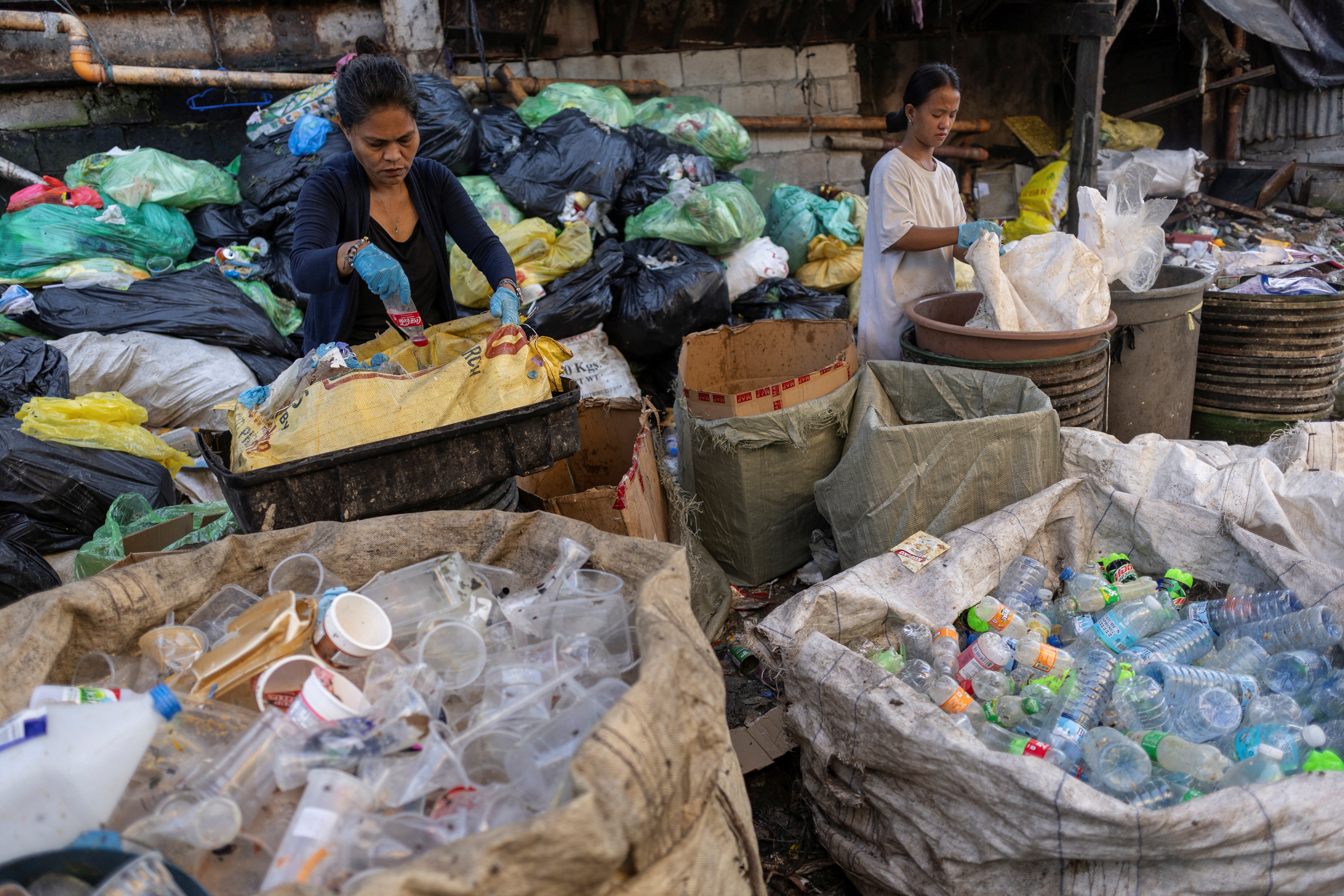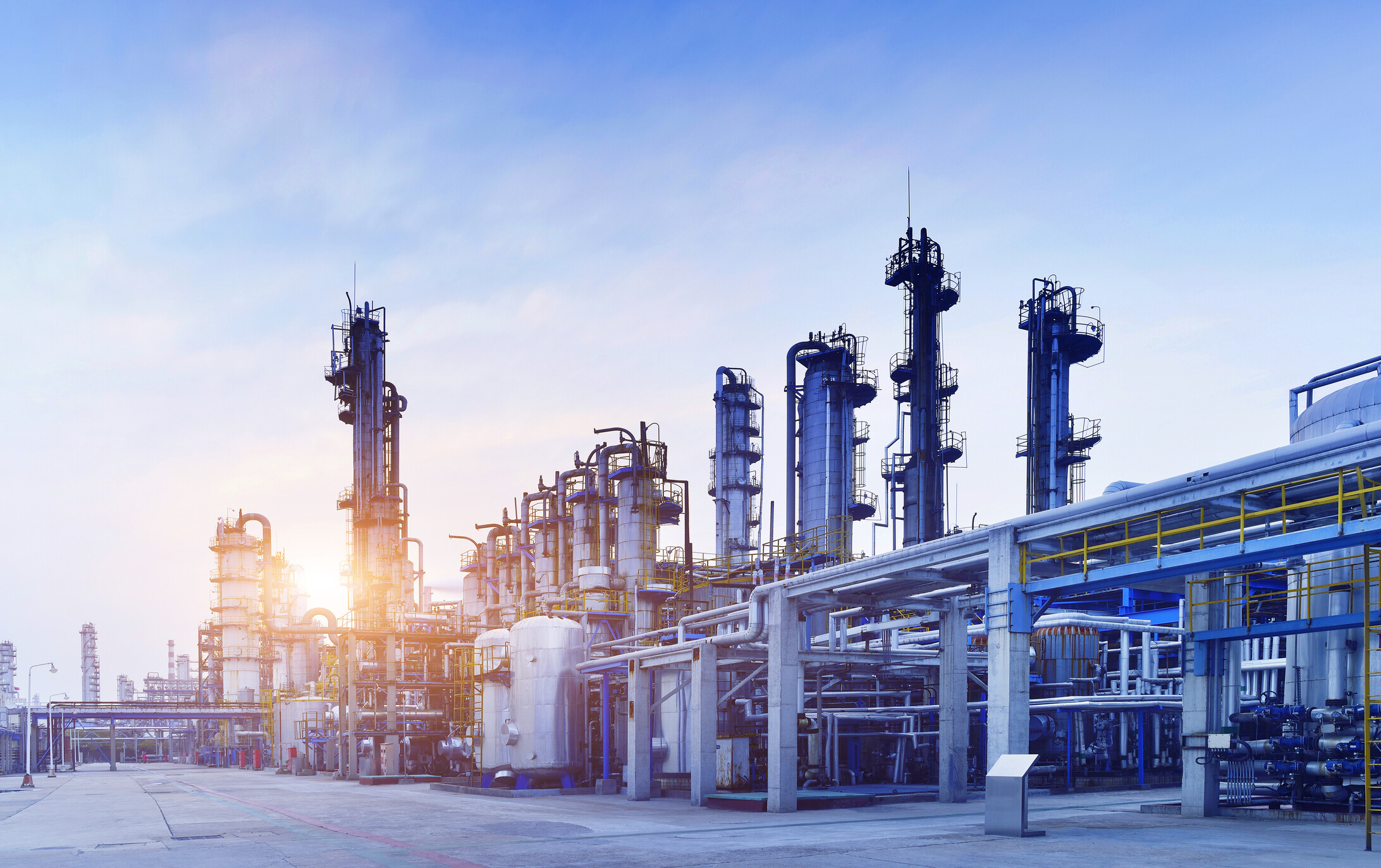Here's how businesses can make the circular economy a reality

Recycling in Cairo's Zabaleen quarter, nicknamed 'Garbage City'. Trucks bring plastic bottles, carton and metal for waste treatment. Image: REUTERS/Amr Abdallah Dalsh
- Half of all existing plastic was manufactured in the last 13 years.
- Less than 10% of all plastic has been recycled.
- Corporations like Dell, PepsiCo, British Telecom and Majid Al Futtaim are gradually transforming their supply chains with circular economy principles.
The principles of the circular economy are simple: be more efficient with the resources you have, reduce waste, and reuse what you can. Do more with less.
The same principles would be familiar to our ancestors living thousands of years ago. And they still apply to millions of subsistence farmers across the developing world right now.
But somewhere along the road, many of us forgot this wisdom. With the surge of consumerism in the 20th century, we have thrown the planet out of balance to fuel our growth. We have done so without consideration, or perhaps understanding, of the damage we cause.
Intoxicated by a deep need to consume, we accumulated things. Today, our consumption increasingly takes the form of ‘accessing’ as opposed to ‘owning’, which satisfies our needs while fulfilling the higher sense of purpose we have developed.
Changing tomorrow
The consequences of our actions are now too profound to ignore. We cannot continue to pay lip service to the idea of change while our “take, make, waste” model causes irreparable stress to the Earth. Half of all the plastic that has ever been made was manufactured in the last 13 years. Less than 10% of plastic has ever been recycled, with most of it ending up in landfill or in the oceans, where it can last for centuries. At the same time, energy consumption is projected to grow by one-third in the next 20 years.
Now, at the dawn of this Fourth Industrial Revolution (4IR), we stand on the cusp of a new era of growth. If we are willing to walk the talk, we can choose a path driven by advancements in technology and understanding, where social, economic and environmental responsibility merge.
Ancient principles, modern solutions
The technologies we now have at our disposal could transform the entire supply chain. We can use data to identify where materials are sourced, how they are used, how long they last, and what use they might be put to next.
This is the basis of the World Economic Forum’s Scale 360 initiative – harnessing the extraordinary opportunities afforded by digital technologies to design a truly sustainable economy. Could an ‘Internet of Materials’ track components from the moment of manufacture and show us how they can be repurposed? Will artificial intelligence help us design products from components that already exist rather than using up finite resources? These are just some of the smart solutions we can begin to utilise.

Leading the way
Earlier this year, the United Arab Emirates became the first government in the world to sign this initiative, pledging to invest in the practical steps needed to develop circular supply chains. By doing so, it is showing the kind of visionary leadership that will be required from governments, businesses, civic society and individuals in every walk of life.
Many other nations have also proved themselves willing to commit to a sustainable future. Norway and Denmark, for example, have invested heavily in projects that can be examples to the rest of the world, including in renewable energy, electric cars, and recycling.
Across the Atlantic, Costa Rica is a global leader in conservation initiatives, while California’s ground-breaking laws to limit greenhouse gas emissions have been a template for many other legislatures to follow.
In China, Shenzhen has dedicated significant resources to becoming the first major city in the world to use electric vehicles for 100% of its public transport. As of this year, more than 21,000 of the city’s 22,000 taxis are powered by battery, while all 16,000 buses are now electric.
A moral imperative
Just as there is much that governments at all levels can do, the private sector has a moral imperative to act. We all have a responsibility to the communities we serve, and the environment we operate in.
At Majid al Futtaim, we are ‘walking the talk’ by developing our own circular economy and have set a target to be net positive in carbon and water by 2040. We will significantly reduce our water consumption and carbon emissions to the extent that we put more back into the environment than we take out, resulting in a positive carbon footprint.
We have already made progress in our efforts towards reducing waste across our businesses. At VOX Cinemas, we collect 100,000 litres of grease each year and every drop is recycled into fuel that can be used to power vehicles, heat homes and even generate electricity. We have also put measures in place to divert our construction waste from landfill, with our greatest success to date at our newly opened shopping mall in Cairo, City Centre Almaza, where we have achieved an 87% recycle rate.
Our latest step towards creating a more sustainable future sees us launching a company-wide policy to phase out single-use plastic from our operations by 2025. This will have a huge impact on our own environmental footprint and we are actively encouraging our suppliers and partners to join us on this journey.
Shared success
Many major corporations – like Dell, British Telecom, PepsiCo and others – have made similar commitments to sustainable development. And there are excellent start-ups dedicated to finding new and innovative ways of leading the circular economy. Ventures like Bekia that reward customers for recycling, and renewable energy firm Shamsina are fine examples of how Arab entrepreneurship can contribute to a more sustainable world.
All these ideas need space to grow and a supportive ecosystem. Visionary leaders in established industries recognise that success should be shared. We must ask ourselves: what can we do to foster innovation in the circular economy? Are we encouraging the development of new skills and providing opportunities where talent can flourish? Are we helping our suppliers, subcontractors and clients adapt to these new frameworks?
Responsive leadership
Visionary and responsive leadership will ultimately make the difference between a sustainable future and extinction.
Even in the immediate future, our action will make a difference. The World Economic Forum estimates that the transition to a circular model could be worth $US1 trillion to the economy by 2025, and create 100,000 new jobs.
But the long-term rewards are even greater – passing on a world in which our descendants can continue to thrive for generations to come and contribute to the never-ending development of humanity.
Don't miss any update on this topic
Create a free account and access your personalized content collection with our latest publications and analyses.
License and Republishing
World Economic Forum articles may be republished in accordance with the Creative Commons Attribution-NonCommercial-NoDerivatives 4.0 International Public License, and in accordance with our Terms of Use.
The views expressed in this article are those of the author alone and not the World Economic Forum.
Stay up to date:
Circular Economy
Forum Stories newsletter
Bringing you weekly curated insights and analysis on the global issues that matter.
More on Circular EconomySee all
Felipe Basso
November 13, 2025







